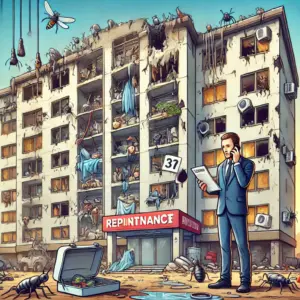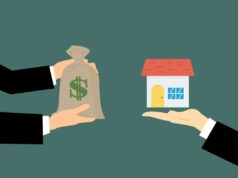Finding a place to rent should mean securing a safe and habitable home, but not all landlords uphold their responsibilities. Some property owners neglect maintenance, cut corners, and exploit tenants by ignoring serious health and safety issues. If you’re dealing with constant problems in your rental unit and your landlord refuses to take action, you may be renting from a slumlord. Legal professionals, such as Castelblanco Slumlord Lawyers, help tenants hold negligent landlords accountable and fight for their rights. Knowing the warning signs of a slumlord can help you determine your next steps.
Unresolved Maintenance Issues
One of the biggest indicators of a slumlord is a refusal to make necessary repairs. If your unit has broken plumbing, heating, or electrical issues that remain unresolved for weeks or months, your landlord may be deliberately avoiding maintenance to save money. Leaking roofs, faulty appliances, and hazardous conditions like exposed wiring or structural damage should be addressed quickly.
Tenants have the right to live in a safe and habitable space. If maintenance requests are ignored, document the problem with photos and written communication to build a case for legal action if necessary.
Pest Infestations and Unsafe Living Conditions
A responsible landlord ensures their property is free from pests like rodents, cockroaches, and bed bugs. When a rental is overrun with infestations, it can create serious health risks for tenants. Slumlords often fail to arrange proper pest control services, leaving renters to deal with the consequences.
Other signs of unsafe conditions include mold growth, peeling lead paint, poor ventilation, and unsanitary common areas. These issues can contribute to respiratory problems, allergic reactions, and long-term health concerns. If your landlord dismisses your complaints about these hazards, they may be prioritizing profits over tenant well-being.
Lack of Proper Heating, Water, or Electricity
Landlords are legally required to provide essential utilities, including heat, running water, and electricity. If your rental frequently experiences power outages, heating failures in the winter, or lack of running water, your landlord is violating basic housing laws.
Some slumlords even resort to shutting off utilities to pressure tenants into leaving. This is considered an illegal eviction tactic, and tenants facing this situation should seek legal help immediately.
Ignoring Security and Safety Concerns
A landlord’s responsibility extends beyond providing a roof over your head—they must also ensure the property is secure. Broken locks, missing or non-functioning smoke detectors, unsecured entryways areas create unsafe conditions for tenants. If your landlord refuses to fix these security issues, they are putting you at risk.
Slumlords often cut corners when it comes to tenant safety, ignoring requests to repair broken doors, install security cameras, or replace malfunctioning locks. If your building has repeated incidents of theft or break-ins and your landlord refuses to act, you may need to seek legal action or involve local housing authorities.
Unlawful Rent Increases and Fees
Slumlords frequently exploit tenants by imposing unfair rent hikes or charging unauthorized fees. While landlords can raise rent when a lease renews (within legal limits), sudden and extreme increases may violate tenant protection laws. In rent-controlled areas, landlords must adhere to local regulations when adjusting rental prices.
Some landlords also attempt to charge tenants for repairs they are legally responsible for, such as plumbing issues or appliance malfunctions. Reviewing your lease agreement and knowing your rights can help you challenge unlawful charges.
Attempts to Evict Without Proper Legal Process
A legitimate eviction follows a formal process, including written notice and time for the tenant to respond. However, slumlords often try to push tenants out illegally by changing the locks, shutting off utilities, or even removing personal belongings. These tactics are not only unethical but also against the law.
If your landlord attempts to evict you without a court order, document the incident and contact a tenant lawyer immediately. You may be entitled to financial compensation if your landlord violates eviction laws.
How to Protect Yourself from a Slumlord
If you recognize these warning signs, it’s important to take action before your situation worsens. Slumlords rely on tenants not knowing their rights, but you have legal protections that can help you fight back.
Keep Records of All Communications
Always document your interactions with your landlord. Save emails, texts, and written repair requests, as well as any responses (or lack thereof). If issues escalate, this evidence can support your case in court or when filing a complaint.
Contact Local Housing Authorities
Most cities have housing departments or tenant advocacy groups that investigate unsafe rental conditions. If your landlord refuses to make necessary repairs or is violating tenant protection laws, filing a complaint may force them to comply. In some cases, landlords can be fined or ordered to fix violations immediately.
Know Your Rights Before Withholding Rent
Some states allow tenants to withhold rent if a landlord refuses to make essential repairs. However, this must be done correctly—simply not paying rent without following the legal process can lead to eviction. Research your local tenant laws or consult a lawyer before taking this step.
Take Legal Action If Necessary
If your landlord’s negligence has caused financial loss, health problems, or an unsafe living environment, you may be able to sue for damages. Consulting a tenant lawyer can help you determine the best course of action. In some cases, tenants can recover moving costs, medical expenses, or rent refunds due to landlord negligence.
Finding a Better Place to Live
If your landlord refuses to improve conditions despite your efforts, it may be best to move when your lease allows. Before signing a lease on a new place, research the property owner’s reputation, read online reviews, and ask current tenants about their experiences. A little due diligence can prevent you from ending up in another bad rental situation.
No one should have to live in a poorly maintained or unsafe rental unit. If you suspect you’re dealing with a slumlord, take action to protect yourself. Understanding your rights, keeping records, and seeking legal support can make a difference in holding negligent landlords accountable and ensuring you have a safe and habitable place to live.





